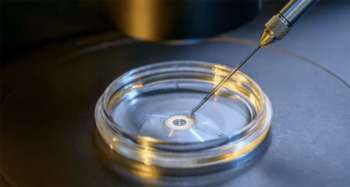By Jennifer Lahl —

The state of Alabama has come under fire from both the left and the right because of a recent state Supreme Court decision. While I’m not surprised when the political left plays fast and loose with the facts on assisted reproductive technologies, I have to admit I was surprised to see people like Donald Trump, Kari Lake, and Greg Abbott, and even the Senate GOP comment, clearly showing their lack of understanding on the facts of this particular ruling and on IVF in general. You can read the court’s decision here. My sense is most who have publicly expressed their outrage haven’t taken the time to do so.
In a nutshell, Alabama, has a statute on their books called the, “Wrongful Death of Minor,” which protects living minor children, as well as fetuses in their mother’s womb, against their wrongful death. Wrongful Death statutes have been on the books in the U.S since the mid-1800s. Many may recall the famous Scott and Laci Peterson case. Scott was convicted of first-degree murder of Laci, and second-degree murder of their unborn son, Connor. It’s not new that some states recognize the wrongful death of minors no matter their location – living or in their mother’s womb.
The facts of this case: in Alabama, three couples filed wrongful death cases because their frozen embryos were in inadvertently destroyed. James and Emily LePage lost two embryos, William and Caroline Fonde lost two embryos, and Felicia and Scott Aysenne lost one. The Supreme Court reported that, “in December 2020, a patient at the Hospital managed to wander into the Center’s fertility clinic through an unsecured doorway. The patient then entered the cryogenic nursery and removed several embryos. The subzero temperatures at which the embryos had been stored freeze-burned the patient’s hand, causing the patient to drop the embryos on the floor, killing them.”
Under Alabama’s Wrongful Death of a Minor law, they filed their lawsuits. The lower courts rejected their case saying this law did not apply to their frozen embryos or embryos outside of the womb. Fortunately for them, the state Supreme Court heard their case on appeal and ruled that, “under existing black-letter law, the answer to that question is no: the Wrongful Death of a Minor Act applies to all unborn children, regardless of their location.”
We agree that location of the embryo, fetus, or child doesn’t matter and, in this case, it falls within the spirit of the wrongful death statute. IVF was not banned, restricted, or prohibited in the state of Alabama as the bandwagon ethicists claim. If anything, clinics who freeze and store human embryos will have to have stricter practices in place so that this tragic event doesn’t happen again.
I spoke with Todd Wilken on his radio program, Issues Etc. about this case.
AUTHOR PROFILE

- Jennifer Lahl, MA, BSN, RN, is founder and president of The Center for Bioethics and Culture Network. Lahl couples her 25 years of experience as a pediatric critical care nurse, a hospital administrator, and a senior-level nursing manager with a deep passion to speak for those who have no voice. Lahl’s writings have appeared in various publications including Cambridge University Press, the San Francisco Chronicle, the Dallas Morning News, and the American Journal of Bioethics. As a field expert, she is routinely interviewed on radio and television including ABC, CBS, PBS, and NPR. She is also called upon to speak alongside lawmakers and members of the scientific community, even being invited to speak to members of the European Parliament in Brussels to address issues of egg trafficking; she has three times addressed the United Nations during the Commission on the Status of Women on egg and womb trafficking.



